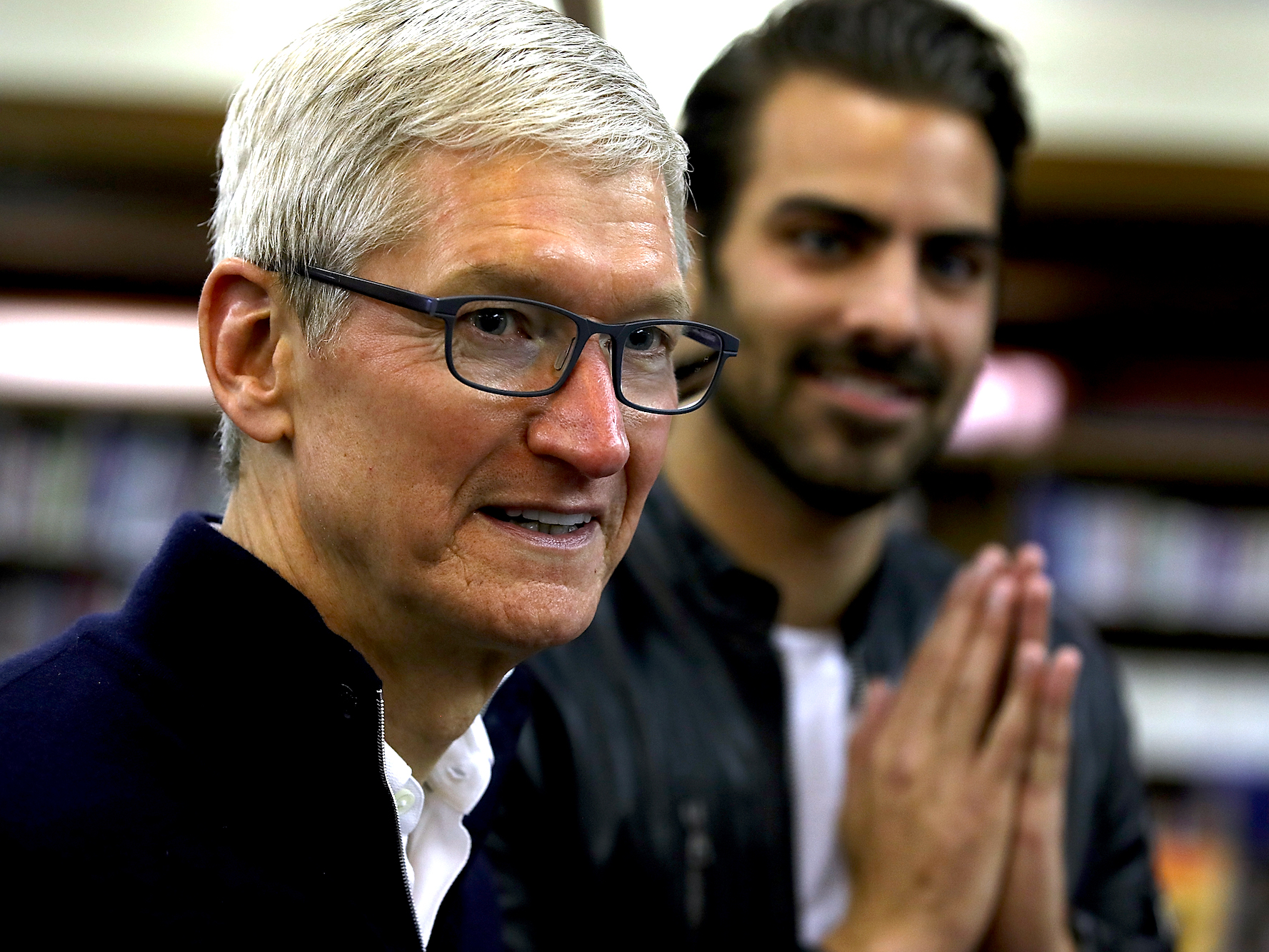- Apple CEO Tim Cook said in an interview with Vice that Apple views data privacy as a human right, and encrypts data the same way in China as it does in every other country.
- He said that while Chinese laws mean Apple stores the data of citizens in China, the data is still secure.
- Cook’s emphasis on resisting privacy intrusions in China could be seen as a subtle swipe at Google, which is working on plans to launch a censored search engine for the Chinese market.
Tim Cook has stressed that Apple does not bend the way it does business in China – and it could be seen as a subtle swipe at Google.
Cook did not mention Google in an interview with Vice on Tuesday, but said Apple protects user data in China in exactly the same as anywhere else in the world.
The Apple CEO said his view of privacy as a human right applied to how the company does business in China. “Encryption for us is the same in every country in the world,” he said.
“We don’t design encryption for the US and do it differently everywhere else, it’s the same. And so to send a message in China, it’s encrypted. I can’t produce the content, I can’t produce it in the United States either. If you lock your phone in China I can’t open it,” added Cook.
Cook said that while Apple complied with laws that mean the data of Chinese citizens have to be stored in China, that data is under lock and key. "We worked with a Chinese company to provide iCloud, but the keys [...] are ours," he said.
Cook added that the fact data is stored in China doesn't make it easier for the Chinese government to access it. "I wouldn't get caught up in 'where's the location of it,' I mean we have servers located in many different countries in the world. They're not easier to get data from being in one country versus the next."
"The key question is how does the encryption process work, and who owns the keys - if anyone. In most cases for us, you and the receiver [of a message] own the keys."
The comments are in contrast to Google, which is reportedly preparing to launch a search engine in China that could be used as "spying tools" by Chinese officials.
In September, The Intercept obtained an internal memo that said Google's custom-built Chinese search engine would require users to log in, and would harvest data about their location and search history with a Chinese partner that would have "unilateral access" to the data.
While Cook did not mention Google or Dragonfly in his interview, setting a marker for user privacy in China sent a message, especially given the harsh words he had for data collectors earlier in the interview.
"The narrative that some companies will try to get you to believe is 'I've got to take all of your data to make my service better.' Well, don't believe that. Whoever's telling you that - it's a bunch of bonk," said Cook, although he did not elaborate on who these companies might be.

